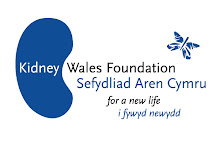 Transplant unit given the go-ahead - icWalesTransplant unit given the go-ahead
Transplant unit given the go-ahead - icWalesTransplant unit given the go-ahead by Ben Glaze, South Wales Echo
Transplant unit given the go-ahead
A SPECIALIST kidney transplant unit for Wales’ biggest hospital has been given the go-ahead.
Plans for the Renal Transplant Centre at the University Hospital of Wales, Heath, Cardiff, have received the backing of various health bodies and will lead to a 21-bed, £4.27m department.
Experts believe demand for kidney transplants in the Welsh capital could soar by up to 15 per cent a year and the existing unit would be unable cope.
New treatments mean more and more victims will be eligible for transplants and the new unit could be up and running in two years.
Floors two and three of a seven-storey tower block will house the new department, which medics believe could perform 160 operations a year by 2012.
Last year 89 were carried out in Wales and there are currently about 400 people waiting for operations.
Cardiff medical student Allison John, 29, is an ambassador for Kidney Wales Foundation and has received heart, lung and kidney transplants.
She said today: “This is fantastic news. We want to make Wales a world-class provider of healthcare and we desperately need somewhere that can do this.
“Now we are going to get it, it will mean great benefits not just for existing kidney patients, but for those who need transplants and those who have had them, because of the improved aftercare.
“All our campaigning has finally paid off and this is a great Christmas present for kidney patients.”
Earlier this year, Professor John Salaman, who pioneered kidney transplants in Cardiff more than 30 years ago, branded the lack of a dedicated kidney transplant in Wales “shameful”.
He said: “Elsewhere in the UK and Europe, major hospitals have their own stand-alone transplant units.
“Wales deserves to have one and must not get left behind.
“It is shameful Wales still does not have a dedicated transplant unit and staffing may become a problem in the future with competition from other parts of the country.”
A spokesman for the Welsh Assembly Government said: “This enhanced facility will mean that greater numbers of patients will be able to get this vital treatment locally, allowing family and friends to visit them which will help aid recovery.
“More than £4.2m will be made available from the All-Wales Capital Programme to support the centre, which is expected to take up to two years to complete from April next year.”
































